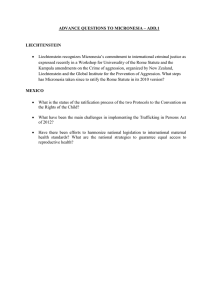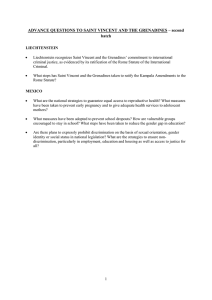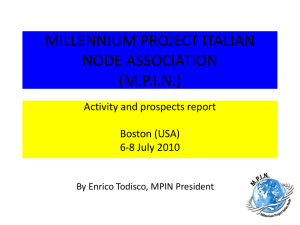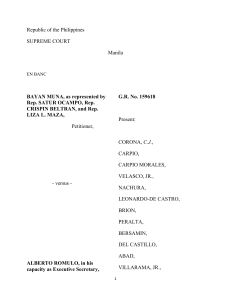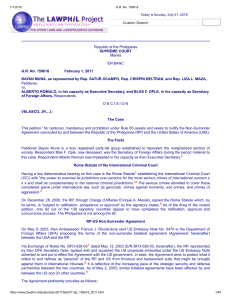ADVANCE QUESTIONS TO NICARAGUA – ADD.1 LIECHTENSTEIN
advertisement
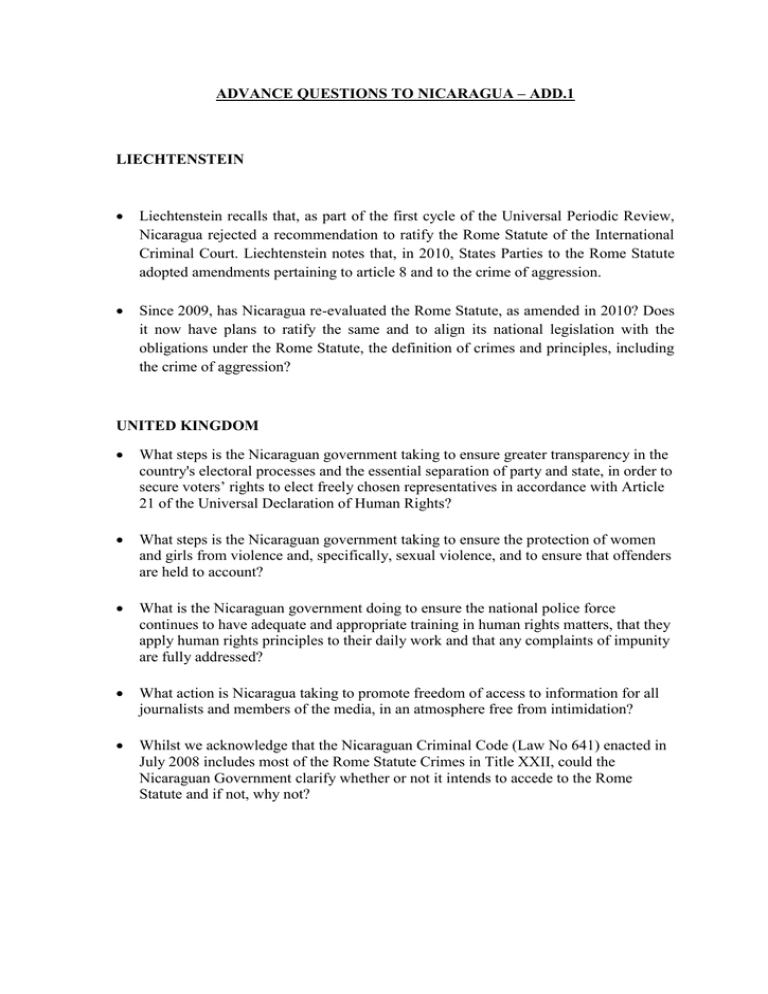
ADVANCE QUESTIONS TO NICARAGUA – ADD.1 LIECHTENSTEIN Liechtenstein recalls that, as part of the first cycle of the Universal Periodic Review, Nicaragua rejected a recommendation to ratify the Rome Statute of the International Criminal Court. Liechtenstein notes that, in 2010, States Parties to the Rome Statute adopted amendments pertaining to article 8 and to the crime of aggression. Since 2009, has Nicaragua re-evaluated the Rome Statute, as amended in 2010? Does it now have plans to ratify the same and to align its national legislation with the obligations under the Rome Statute, the definition of crimes and principles, including the crime of aggression? UNITED KINGDOM What steps is the Nicaraguan government taking to ensure greater transparency in the country's electoral processes and the essential separation of party and state, in order to secure voters’ rights to elect freely chosen representatives in accordance with Article 21 of the Universal Declaration of Human Rights? What steps is the Nicaraguan government taking to ensure the protection of women and girls from violence and, specifically, sexual violence, and to ensure that offenders are held to account? What is the Nicaraguan government doing to ensure the national police force continues to have adequate and appropriate training in human rights matters, that they apply human rights principles to their daily work and that any complaints of impunity are fully addressed? What action is Nicaragua taking to promote freedom of access to information for all journalists and members of the media, in an atmosphere free from intimidation? Whilst we acknowledge that the Nicaraguan Criminal Code (Law No 641) enacted in July 2008 includes most of the Rome Statute Crimes in Title XXII, could the Nicaraguan Government clarify whether or not it intends to accede to the Rome Statute and if not, why not?
